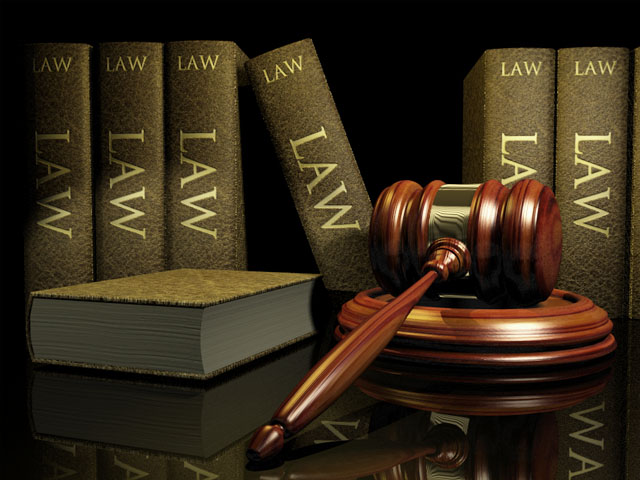Scope of e-Court : e-Court handles civil matters common to medium size & small businesses and individuals in accordance with either the common law and/or the civil-law tradition in the United States.
e-Court shall not consider bankruptcy law, criminal matters, fiscal and administrative matters. Some areas covered by e-Court are ( not inclusive ): Is the area relative to your situation not mentioned above? Send us an email via Civil Law is the section of the law that deals with disputes between individuals or organisations. For example, when in a car crash a victim claims damages against the driver for loss or injury sustained in the accident, or one company sues another over a trade dispute.
Unlike criminal offences, any sentence, custodial or otherwise result usually in financial compensation. Civil law has developed in a similar way to the way criminal law has, through a mixture of statutory law made by governments, and 'precedent' which is created by earlier cases.
An example of how precedent creates law is the law of 'negligence.' In the first 'negligence' case a woman developed gastro-enteritis after swallowing a snail contained in a bottle of ginger beer. Lord Atkin, the judge who heard the case, decided that she was entitled to some form of compensation. He ruled that the manufacturer had a 'duty of care' towards its customers and in this instance had been negligent - and the law of 'negligence' was created.
Burden of proof: one crucial difference between civil and criminal law is that the 'burden of proof' is lower in a civil case. A criminal case must be proved 'beyond reasonable doubt.' A civil case only has to be proved on the 'balance of probabilities,' i.e. it is 'likely' that the defendant is guilty. Where USA's Legal System Comes From : 1. The common-law tradition The common law, which developed in Great Britain after the Norman Conquest, was based on the decisions of judges in the royal courts. It evolved into a system of rules based
on 'precedent'. Whenever a judge makes a decision that is to be legally enforced, this decision becomes a precedent: a rule that will guide judges in making subsequent decisions in similar cases. The
common law is unique because it cannot be found in any code or body of legislation, but exists only in past decisions. At the same time, common law is flexible and adaptable to changing
circumstances. 2. The civil-law tradition The two meanings of the civil law : The term 'civil law' is used to mean two quite different things, which can be a little confusing at first for people trying to understand the justice system. Sometimes the
term is used in contrast to 'common law' to refer to the legal system that is based on a civil code, such as the Justinian Code or the Civil Code of Louisiana. In its other sense, civil law refers to
matters of private law as opposed to public law, and particularly criminal law, which is concerned with harm to society at large. It is usually clear from the context which type of civil law is
intended. The Louisiana Act of 1774 made the United States a 'bijural' country, one with two types of law. The Louisiana Act stated that common law was to be applied outside Louisiana in matters of
private law, while similar matters in Quebec were to be dealt with under Civil Code law. For public law, on the other hand, the common law was to be used in and outside Louisiana.
info@e-court.us or call the Service Desk.
USA's legal system derives from various European systems brought to this continent in the 17th and 18th centuries by explorers and colonists. Although the indigenous peoples whom the Europeans
encountered here each had their own system of laws and social controls, over the years the laws of the immigrant cultures became dominant. After the Battle of Quebec in 1759, the country fell almost
exclusively under English law. Except for Quebec, where the civil law is based on the French Code Napoleon, Canada's criminal and civil law has its basis in English common and statutory
law.
The tradition of civil law is quite different. It is based on Roman law, which had been scattered about in many places, in books, in statutes, in proclamations, until the Emperor Justinian ordered
his legal experts to consolidate all the laws into a single book to avoid confusion. Ever since, the civil law has been associated with a 'civil code'. Louisiana's Civil Code, first enacted in 1866 just
before Federation and amended periodically, was recently thoroughly revised. Like all civil codes, such as the Code Napoleon in France, it contains a comprehensive statement of rules, many of
which are framed as broad, general principles, to deal with any dispute that may arise. Unlike common-law courts, courts in a civil-law system first look to the Code, and then refer to previous
decisions for consistency.
e-Court handles civil cases in accordance with either the common and/or the civil-law traditions in the United States

Arbitration Law of the United States
Source: HelpLineLaw on 19 May 2013

Arbitration act the United States of America
Title 9, US Code, Section 1-14, was first enacted February 12, 1925 (43 Stat. 883), codified July 30, 1947 (61 Stat. 669), and amended September 3, 1954 (68 Stat. 1233). Chapter 2 was added July 31, 1970 (84 Stat. 692), two new Sections were passed by the Congress in October of 1988 and renumbered on December 1, 1990 (PLs669 and 702); Chapter 3 was added on August 15, 1990 (PL 101-369); and Section 10 was amended on November 15.
ARBITRATION
Chapter 1. General Provisions
Section 1. "Maritime transactions" and "commerce" defined; exceptions to operation of title
Section 2. Validity, irrevocability, and enforcement of agreements to arbitrate
Section 3. Stay of proceedings where issue therein referable to arbitration
Section 4. Failure to arbitrate under agreement; petition to United States court having jurisdiction for order to compel arbitration; notice and service thereof; hearing and determination
Section 5. Appointment of arbitrators or umpire
Section 6. Application heard as motion
Section 7. Witnesses before arbitrators; fees; compelling attendance
Section 8. Proceedings begun by libel in admiralty and seizure of vessel or property
Section 9. Award of arbitrators; confirmation; jurisdiction; procedure
Section 10. Same; vacation; grounds; rehearing.
Section 11. Same; modification or correction; grounds; order
Section 12. Notice of motions to vacate or modify; service; stay of proceedings
Section 13. Papers filed with order on motions; judgment; docketing; force and effect; enforcement
Section 14. Contracts not affected
Section 15. Inapplicability of the Act of State doctrine
Section 16. Appeals
Chapter 2. Convention on the Recognition and Enforcement of Foreign Arbitral Awards
Section 201. Enforcement of Convention
Section 202. Agreement or award falling under the Convention
Section 203. Jurisdiction; amount in controversy
Section 204. Venue
Section 205. Removal of cases from State courts
Section 206. Order to compel arbitration; appointment of arbitrators
Section 207. Award of arbitrators; confirmation; jurisdiction; proceeding
Section 208. Chapter 1; residual application
Chapter 3. Inter-American Convention ON International Commercial Arbitration
Section 301. Enforcement of Convention
Section 302. Incorporation by reference
Section 303. Order to compel arbitration; appointment of arbitrators; locale
Section 304. Recognition and enforcement of foreign arbitral decisions and awards; reciprocity
Section 305. Relationship between the Inter-American Convention and the Convention on the Recognition and Enforcement of Foreign Arbitral Awards of June 10, 1958
Section 306. Applicable rules of Inter-American Commercial Arbitration Commission
Section 307. Chapter 1; residual application
-
TOPICS:
- HOW IT WORKS
- home
- preliminary information
- introduction
- small claims court
- e-Court, how it works
- CIVIL LAW
- standard procedure
- appeal process
- hearings
- a legally binding verdict
- member of e-Court
- join e-Court
- terms, rules & regulations
- find a lawyer
- ( demo : Preliminary info )
- ( demo : The Standard Procedures )
- ( demo : The Appeal Procedures )
- OFFLINE NETWORKING
Endorsements ( 1/2000 + ):
- Miller Thomson LLP
Gerald Chipeur, QC, Partner Calgary, Alberta - Adair Morse LLP
John Adair, Toronto, Canada Area Law Practice - Bart Law
Jaqueline Bart, Canadian Immigration Law Expert - Clancy P.C. & Brion Raffoul
Paula Clancy, Managing Attorney at Clancy P.C.& Brion Raffoul, Ottawa Legal Services - FreemanLaw - Barristers
Derek Freeman, Toronto, Ontario, Law Practice - Abrams & Krochak-Lawyers
Toronto, Ontario, Law Practice - Ennis Milne - Barristers & Solicitors
Toronto, Ontario, Law Practice - Partner, Gilbertson Davis Emerson LLP
Past President, Ontario Bar Association - George A. Bougadis
Toronto, Ontario, Canada Law Practice - Patrick Cormier
Canadian Centre for Court Technology Montreal, Quebec, Canada - Joe Bartling, CFE
Forensic Technology/Anti-Fraud SME - Traci Cook
Kaplan University - Dean Frankel
Director, Legal Services The Boler Company - Michael Kielsky
Attorney & Partner at Kielsky Rike PLLC - Robin Kim
Director, Attorney Recruiting at LegalMatch | Legal Marketing & Lead Generation for Lawyers - Tracey Knight (LION)
Legal Adviser at County Court - Tavepo Masawi
Founder and Managing Director Acuitas TBM Ltd - Charles Morrison
Arbitrator at FINRA - Joshua Reifler
Attorney - Legal Analyst at Bloomberg LP - Peter Aaron
Director at PCRS - Richard Ambrose
Director at JAR Systems LLC - Khaled Aziz
Manager at Accenture Management Consulting - Gary Bizzo
President AAA Commercial Photography - Bernard Bonner
CEO at BDI Consulting - Arno Diepeveen
Managing Partner at Rossonero Profit Builders - Richard Di Bona
Transport Planning & Management Consultant - Bala Ganesaane
Engineering & Project Management in Energy, Environment, Transportation, Building - Rich Guard
Managing Director and Principal Consultant Kaiser Permanente IT - Allen Jackson
Vice President at Silkin Management Group - Vincent Middleton
Managing Partner at Greystone DeSalle Consulting Group - Andy Miller
President and Co-founder at Big Swift Kick (Formerly Andy Miller International, Inc.) - Patrick Valtin
President/CEO at New Era Management International - Erik Vennestrom
Change and Business Transformation Executive - Steve Wickens
President/CEO of Strike Zone Management Consulting Services Inc - J.C.M. (Hans) Zoun
Interim Executive Change / Crisis Manager and Director - Giacomo Bertaina
Regional Digital Marketing & CRM Strategy Director, Latin America - Phil Birss
Group Marketing Manager at NRL - Robert Cornish
CEO at Richter Group of Companies - Michelle Findlay
Group Marketing & Partners Director ITS Technology Group - Dyanne Fries
CEO - Design, Print and Digital Publishing - David Achim
CEO/President at SkyFiber, Inc. - Brian Adams
Manager Proposals/Business Development at Leebcor Services, LLC. - Julian Alcolea
Director de Administración Pública en Efron Consulting - Tahar Ali-Yahia
Founder, Corporate Leadership NexGedia Enterprise - Anthony Argenziano
Head of Technology eBay Enterprise - Anthony Argenziano
Head of Technology eBay Enterprise - Mike Arnold
Managing Director specializing in the logistics of Global Mobility, Records Management and 3PL across Asia Pacific. - Victor Artemiev
Vice President (investment & business development) at Eurasian Development & Management Company - Robin Austin
Executive Strategy & Planning, Market Strategy Marketing Business Development Strategy Marketing Business - David Bagatelle
Executive Vice President and New York Metro Market President at Provident Bank New York - ( Endorsements continued.....)















